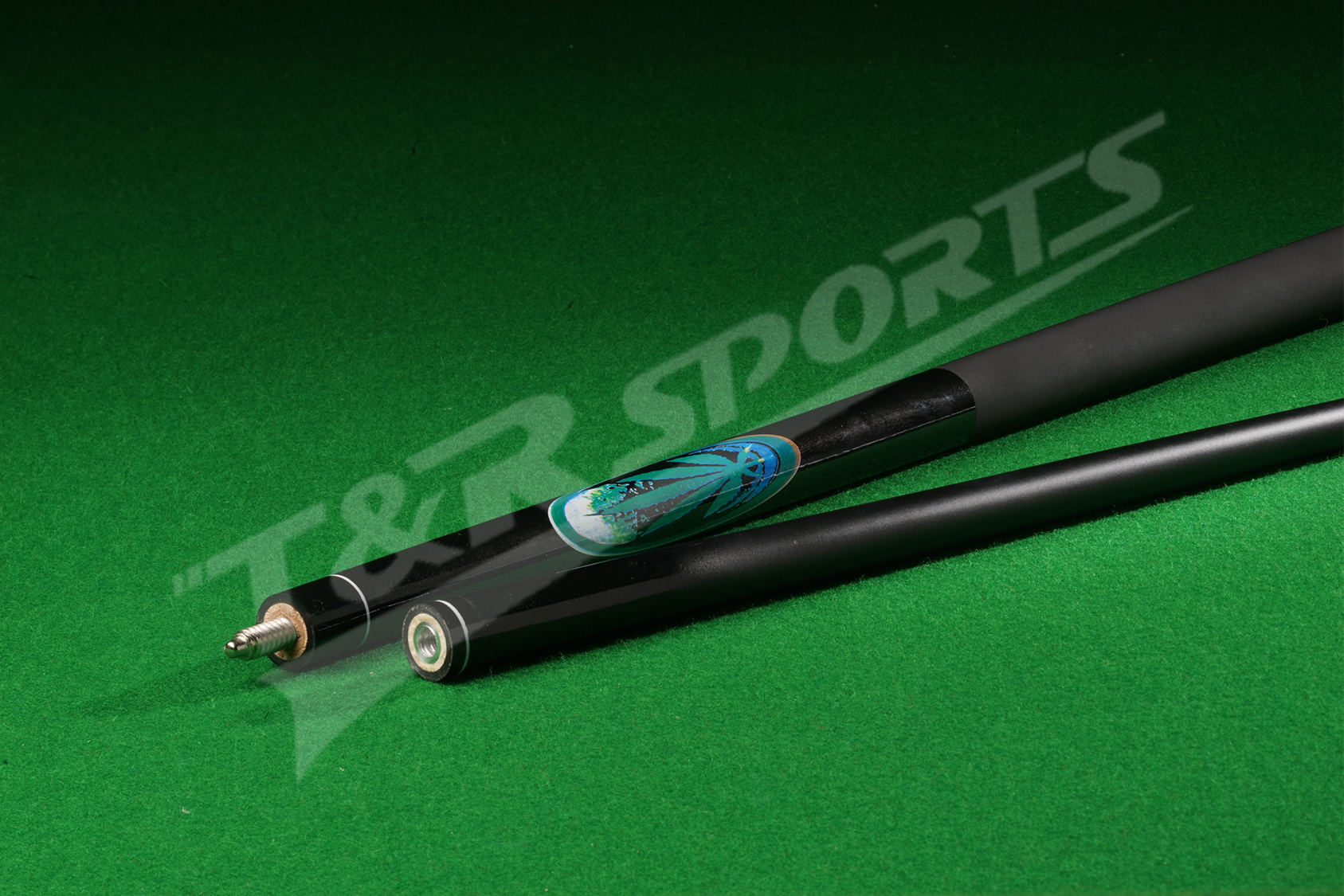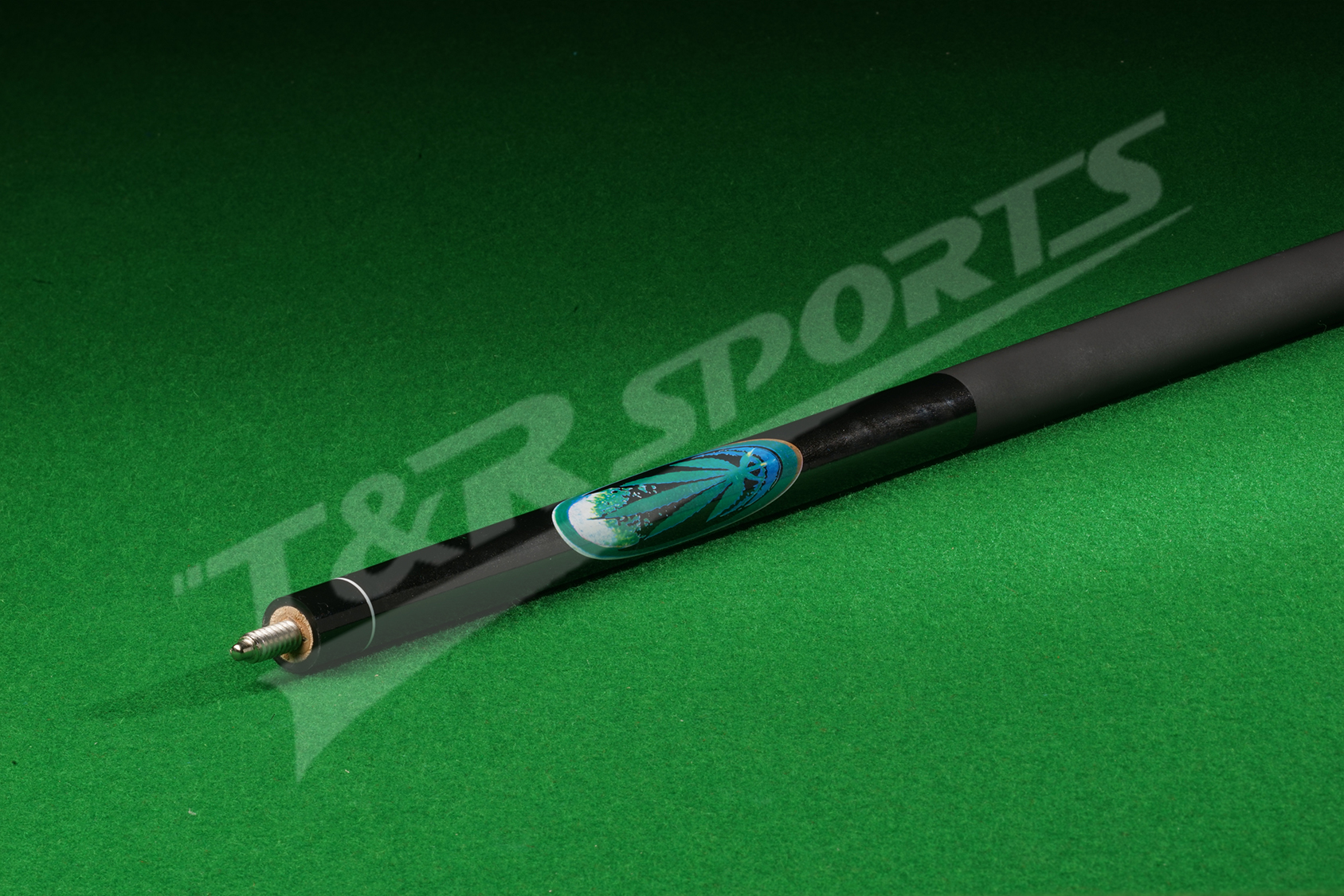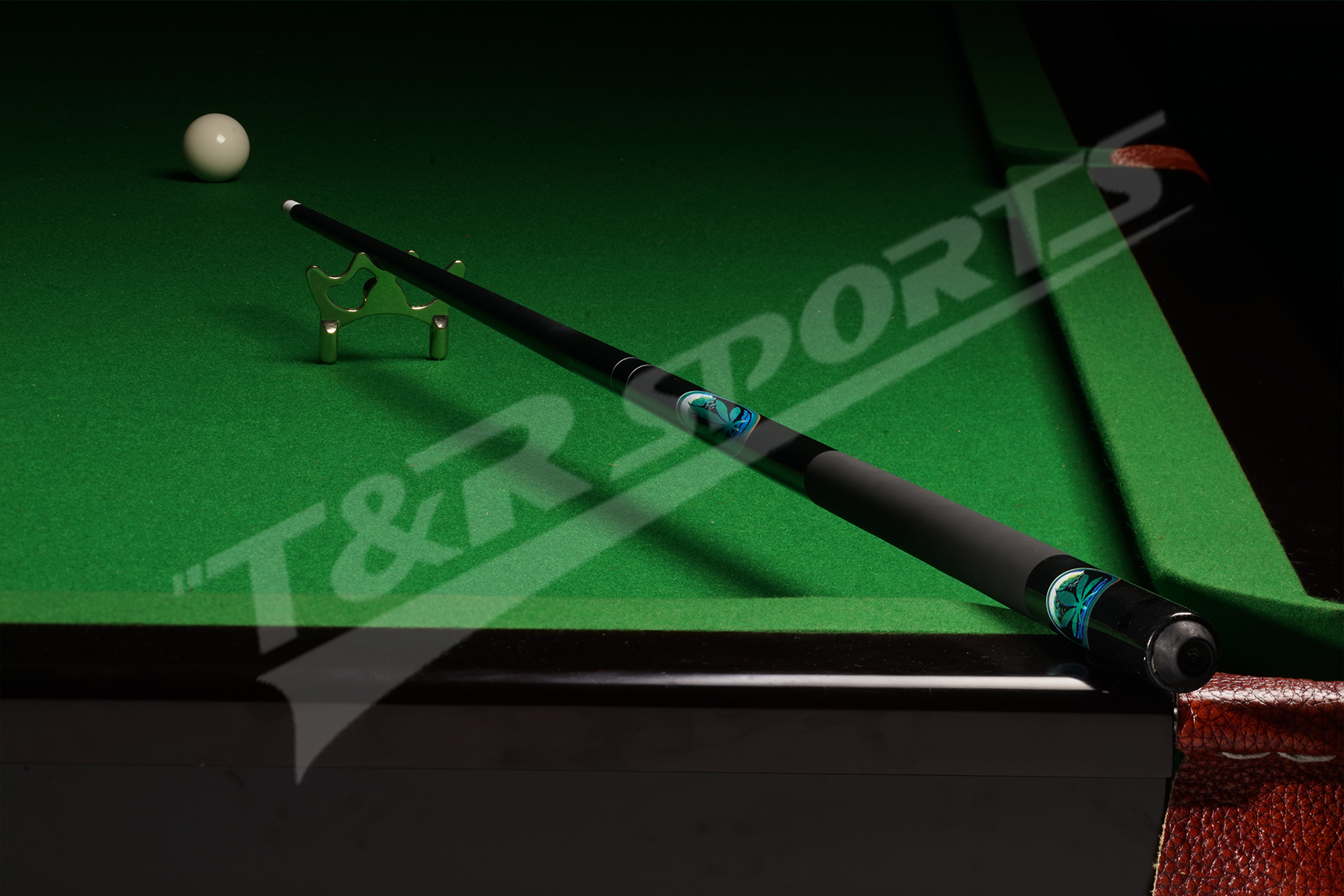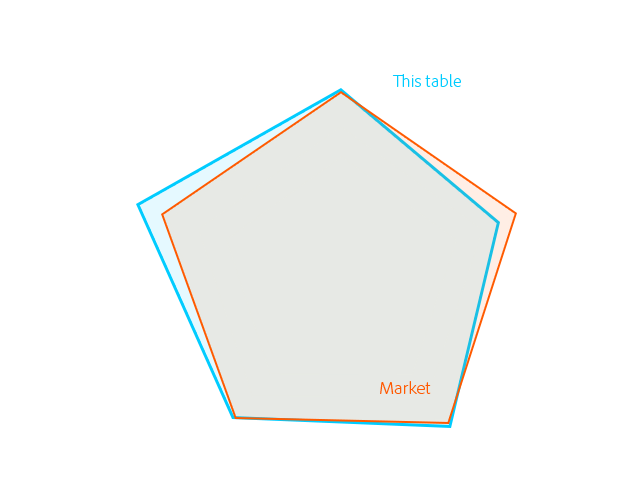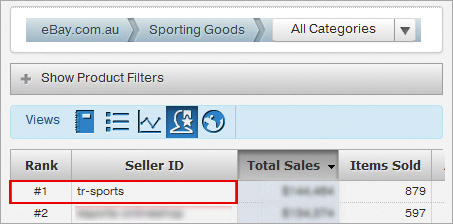Shaft
Shafts are made with various tapers, the two most common being the pro taper and the European taper. The pro taper has the same diameter from the tip to 30–35 cm (12-14 inches) toward the joint, at which point it begins to widen. The European taper widens continually and smoothly from the ferrule toward the joint. Despite their names, the continually sloping European taper is found in most North American bar and house cues, and not all professional players prefer a straight pro taper on their custom, two-piece models.
Tips
Leather tips of varying curvature and degrees of hardness are glued to (or in some cases screwed into) the ferrule. The de facto standard curvatures for a pool tip are dime- and nickel-radius, determined by shaping a tip so that when one puts a nickel or dime to it, they have the same curvature. The tip end of the cue will vary in diameter but is typically in the 9 to 14 millimeter range with 12–13 mm for pool cues, and 9–10 mm for Snooker cues being most common.
Rounder (i.e., smaller radius) tips impart spin to the cue ball more easily since the point of contact between the tip and the ball requires less distance from the center hit to impart the same amount of spin, due to the increased tangential contact. Tips for break and jump cues are usually nickel radius or even flatter, and sometimes made of harder materials such as phenolic resin; the shots are forceful, and usually require less spin.
A leather tip naturally compresses and hardens with subsequent shots. Without proper care, the surface of the tip can develop an undesired smoothness or glossiness which can significantly reduce the desired friction between the tip and the cue ball. Cue chalk is applied to the tip of the cue, ideally after every other shot or so, to help achieve the desired friction and minimize the chance of a miscue. This is especially important when the cue tip does not hit the cue ball in its center and thereby imparts spin to the cue ball.
There are different grades of hardness for tips, ranging from very soft to very hard. Softer tips (major brands include Elk Master) hold chalk better, but tend to degrade faster from abrasion (from chalk and scuffers), shaping (from cue tip shapers/tackers/picks), and mushrooming (the sides of the tip bulge out from long normal use or from hard hits that compact the tip in all directions). Harder tips (major brands include Blue Diamond Plus, Triangle and Le Professional or "Le Pro") maintain their shape much better, but because of their hardness, chalk tends to not hold as well as it does on softer tips. The hardness of a leather tip is determined from its compression and tanning during the manufacturing process.
All cue tips once were of a one-piece construction, as are many today (including LePro and Triangle). More recently some tips are made of layers that are laminated together (major brands include kamui, Moori and Talisman). Harder tips and laminated tips hold their shape better than softer tips and one-piece tips. Laminated tips generally cost more than one-piece tips due to their more extensive manufacturing process. A potential problem with layered tips is delamination, where a layer begins to separate from another or the tip completely comes apart. This is not common and usually results from improper installation, misuse of tip tools, or high impact massé shots. One-piece tips are not subject to this problem, but they do tend to mushroom more easily.
Ferrule
The end of the shaft has a cuff known as the ferrule which is used to hold the cue tip in place and to bear the brunt of impact with the cue ball so that the less resilient shaft wood does not split. Ferrules are predominantly made of ivory (in case of billiards and pool), carbon fiber, or a plastic such as melamine resin, aegis or phenolic resin which are extremely durable, high-impact materials that are resistant to cracking, chipping, and breaking. Brass is mostly used for snooker cues, although it is possible to come across a Canadian snooker cue with a non-metal ferrule.
Joint
The heavy, lower piece of the cue is the cue butt, and the smaller, narrower end is the shaft. The two cue pieces are attached at the joint; normally a screw rising from butt end's joint (male) is threaded into a receptacle on the shaft (female), or vice versa. The joints are made of various materials, most frequently a plastic, brass, stainless steel, or wood outer layer, but some custom cues are made of bone, antlers, or other more expensive materials that are less common, but serve the same effect. Most snooker cues have brass-to-brass joints. The internal male and female connection points are almost always brass or steel because they respond less to temperature changes and thus expand and contract less than other materials, preserving the life of the cue. Joints have different sizes as well as different male and female ends on the shaft and butts of the cues. Traditional designs employ a fully threaded connection, while newer versions (marketed under such names as Uni-loc, Accu-loc, Speed-loc, and Tru-loc) employ half-threaded "quick pin release" connections that allow players to assemble and disassemble their cues faster.
Butt
The bulk of the weight of the cue is usually distributed in the cue butt portion. Whether the weight be 16 oz. or 22 oz., the weight change is mainly in the butt (usually in the core, under the wrap). Butts have varying constructions, from 3-piece to one-piece, as well as other custom versions that people have developed. These translate into different "feels" because of the distribution of weight as well as the balance point of the cue. Traditionally, players want the balance point of a cue near the top end of the wrap or around 7 inches from where they grip the butt. Some brands, and most custom cuemakers offer weights, usually metal discs of 1 to 2 ounces, that can be added at one or more places to adjust the balance and total weight and feel of the cue.
The cue butt is often inlaid with exotic woods such as cocobolo and bocote as well as other materials such as ebony and ivory. Usually parts of the butt are sectioned off with decorative rings. The use of various types of wraps on the cue butt, such as Irish linen or leather, provide a player with a better grip as well as absorbing moisture. Low-priced cues usually feature a nylon wrap which is considered not as good a "feel" as Irish Linen. Fiberglass and Graphite cues usually have a "Veltex" grip that is made of fiberglass/graphite, but is smoother and not glossy. Some people also prefer a cue with no wrap, and thus just a glossed finish on wood. Sometimes these no-wrap cues are more decorated because of the increased area for design and imagination. The butts of less expensive cues are usually spliced hardwood and a plastic covering while more high-end cues use solid rosewood or ebony.
Source: Wikipedia


